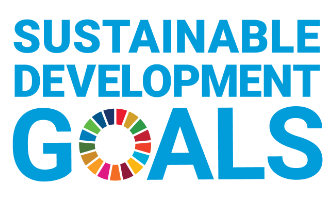Founded 73 years ago in 1951, IOM is the leading inter-governmental organization in the field of migration. With 175 member states and a presence in over 100 countries, IOM is committed to the principle that humane and orderly migration benefits migrants and society.
The Organization works with its partners in the international community to assist in meeting the operational challenges of migration, advance understanding of migration issues, encourage social and economic development through migration and to uphold the well-being and human rights of all migrants.
IOM in the Netherlands
The International Organization for Migration started its activities in the Netherlands in 1991. Our projects include facilitating voluntary return and reintegration, supporting refugees accepted for resettlement and family reunification, services aimed at inclusion and labour and skills mobility.
Voluntary Return and Reintegration
We assist migrants who wish to return voluntarily to their country of origin and support their sustainable reintegration. Assistance consists of information and counselling services, procuring travel documents, arranging safe travel, and providing reintegration support. We are in favour of reintegration assistance based on human dignity and as a major sustainability factor in countries of origin.
Through our network of offices around the world, we can offer individual in-kind reintegration support, such as setting up income-generating activities or financing educational or training programmes. Tailored assistance is provided to specific vulnerable groups, including migrants with health issues, victims of trafficking, unaccompanied minors, families or single parents with underage children, and undocumented migrants.
Coming to the Netherlands
IOM the Netherlands is involved in various movements of people to the Netherlands. Firstly, we facilitate the resettlement of selected refugees to the Netherlands, in close cooperation with our offices in countries of departure and partner organizations. Upon request of the Dutch government, we also assist in the safe transfer of other displaced migrants to the Netherlands. Secondly, we assist family members who are entitled to reunite with their family in the Netherlands. For instance, we can support the DNA sample collection to establish family bonds in countries of origin, which is part of the government’s family reunification procedure. In some cases, IOM also assists with travel and logistics, and serves as a contact point for relatives or sponsors in the Netherlands.
Labour Migration
IOM strives to protect migrant workers and to optimize the benefits of labour migration for countries of origin and destination, as well as for migrants themselves. We promote collaborative, effective, and sustainable approaches to cross-border mobility for employment or training purposes. In doing so, we provide technical assistance, develop the capacity of relevant stakeholders, and provide policy advice on rights- and evidence-based mobility pathways. Our efforts respond to labour market needs and contribute to development.
In this context, we carry out the STEMTALENT4NL project. Commissioned by the Ministry of Justice and Security and supported by the European Commission, IOM provides technical assistance to the Netherlands in the establishment, capacity building and implementation of policies and practices around STEM (Science, Technology, Engineering and Mathematics) graduate attraction and retention. For this, we map out the current admissions system framework and identify possible gaps and solutions, particularly related to the Orientation Year Permit.
Social Inclusion
IOM supports migrant inclusion and social cohesion. We work on projects that help migrants find their way into Dutch society. We also assist our partners (government, employers, etc.) in recognizing and welcoming the positive contributions that migrants bring. In all stages of our work, we ensure that migrant voices are included. We do this through joint project development and monitoring, through the set-up of culturally- and gender-diverse Migrant Ambassador Advisory Boards, by working with migrants as cultural mediators, and by conducting joint campaigns with Diaspora Ambassadors to create inclusive messaging.
Practically, IOM implements the LEARN project in close coordination with the Ministry of Social Affairs and Labour (SZW) and the European Commission. LEARN seeks to support the inclusion of asylum permit holders in the Dutch labour market and does this through facilitating a "Learning Network”. This network consists of employers, educators, municipalities, and permit holders themselves and focuses on solutions to scale up work-study programmes for permit holders. We also develop recommendations for future policy and practice.
Additionally, the Moving the Middle project improves social cohesion by fostering a more nuanced narrative about migrants and migration in the Netherlands. The project’s activities include researching of effective communication tools to address the ambivalent segment of the Dutch population and deploying this knowledge to set up information campaigns. A Migrant Ambassador Advisory Board (MAAB) is consulted throughout the project, making sure that we put migrant voices central.
Lastly, the SAMEN project aims to prevent and combat sexual and gender-based violence (SGBV) experienced by migrant communities in the Netherlands. Together with Dokters van de Wereld and migrant ambassadors, SAMEN supports migrant survivors in finding their way through the Dutch healthcare system. Moreover, the project promotes cultural sensitivity in the Dutch service sector and facilitates knowledge exchange between stakeholders to collaboratively combat SGBV. The project is implemented in six cities in the Netherlands - Amsterdam, Arnhem, The Hague, Nijmegen, Rotterdam and Utrecht – and is funded by the European Commission, the Ministry of Education, Culture and Science, and Rotterdam Municipality.



